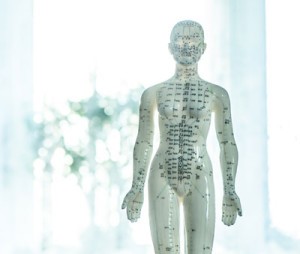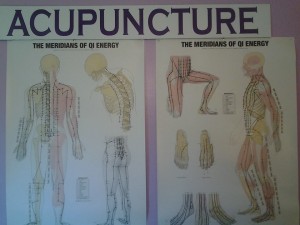- Cloud 9 Acupuncture & Integrative Medicine22 West Padonia Rd. Suite A-203
Timonium, MD 21093 - By Appointment Only
-
Latest Articles:
- • Add These 10 Immune-Boosting Foods to Your Fall Diet •
- • Keep Your Skin Healthy and Glowing with these Fall Skincare Tips •
- • Beat End of Year Burnout with these Fall Self-Care Rituals •
Uncategorized
Getting Regular Acupuncture Treatments Boosts Immunity
By Emily Herman, M.Ac., L.Ac,
One of the many beneficial “side effects” of acupuncture, regardless of why you initially walked into your practitioner’s door, is that it can improve impaired immune function.
This is a great time of year to get into the groove of seeing your acupuncturist regularly to boost your immune system – and prevent colds from taking hold before they even get a chance! Because as you may know, it is better to prevent an illness than to have to treat it.
There are many studies pointing to the immune-boosting effect of acupuncture, however I would like to highlight one entitled “Effect of acupuncture treatment on the immune function impairment found in anxious women.” This study looked specifically at a population of 34 women ranging from 30-60 years old, all suffering from anxiety. The acu-points used were chosen for their effectiveness in relieving anxiety. Blood samples were drawn from the participants before treatment and 72 hours after treatment. From the abstract:
“The results showed that the most favorable effects of acupuncture on the immune functions appear 72 hours after the single session and persist one month after the end of the complete treatment. Impaired immune functions in anxious women (chemotaxis, phagocytosis, lymphoproliferation and NK activity) were significantly improved by acupuncture, and augmented immune parameters (superoxide anion levels and lymphoproliferation of the patient subgroup whose values had been too high) were significantly diminished.”
Arranz L, Guayerbas N, Siboni L, De la Fuente M. (2007) Effect of Acupuncture Treatment on the Immune Function Impairment Found in Anxious Women. Retrieved from www.ncbi.nlm.nih.gov/pubmed/17265549
Not only does getting regular acupuncture help improve mood, promote immediate and lasting relaxation, and better sleep, just to name a few benefits; it can help you stave off those nasty colds!
Call or book your appointment online today!

Licensed Acupuncturist
Emily sees patients in our Timonium location on:
Wednesdays… 4pm – 8pm
Saturdays …. 2:30pm – 6pm
Emily is in network with Blue Cross/Blue Shield, Cigna and Aetna plans.
Read more about Emily at https://cloud9acuclinic.com/emily-herman-acupuncturist/
Your Symptoms As Your Teacher
Acupuncture and the automotive mechanic: the business of recognizing symptoms before they become costly
By: Chris Fadgen, M.Ac., L.Ac.
Your car is an investment that you want to last. So when the check engine light comes on or the car temperature gauge lights up, you know it’s time to call the mechanic. Sure, sometimes we can push through and delay appropriate service, but that comes with potential risk of damage and more costly repairs.
As an acupuncturist, I request you look at our body in the same way. It goes without saying that it is your greatest investment but the challenge is, it didn’t come with an owner’s manual.

Just like a car dashboard has signals alerting us of mechanical issues, the human body offers messages can help direct us. These messages are usually subtle and require some keen observation. To begin to reach a deeper understanding of their “signals”, I advise my patients to observe and report on 5 symptoms that “come and go”. These can be simple things like “tired eyes”, a small headache or body ache, that odd knee or back pain that seems to come out of nowhere.

Often these seemingly unrelated symptoms begin to take a certain pattern. It takes a little time and observation, but eventually a patient will find that when one symptom comes and the appropriate remedy is not provided, another, more pronounced symptom surely follows. The onset and severity of the symptoms rise to match the medical issue whereby each “signal” that is ignored results in a stronger and more unavoidable message until the issue is so problematic that costly medical intervention become a necessity.
In short, if we don’t recognize and intervene appropriately, the problem escalates until it is critical enough to correspond directly to modern medical diagnosis. This usually means trouble (and costly repairs).
Regular acupuncture treatment delivers the ability to see the signals offered by our body. The question is, “Will you choose to disregard your body’s signals and allow the issue to escalate toward more drastic medical intervention OR will you observe, recognize and take effective action to remedy the issue?”

My acupuncture process empowers you to take control of your health and wellness usually in small and easy ways to avoid more costly repairs. I look forward to seeing you in our White Marsh office. Schedule a FREE 15 minute consult or book your first appointment today at Cloud9AcuClinic.com.

Chris sees patients at our White Marsh location on:
Mon. 8:30am – 7pm
Tues. 12:30pm – 7pm
Wed. 8:30am – 12:30pm
Thurs. CLOSED
Fri. 8:30am – 7pm
Sat. 8:30am – 12:30pm *Every Other Saturday*
Chris is in network with Blue Cross/Blue Shield, Cigna and Aetna plans.
Read more about Chris at https://cloud9acuclinic.com/chris-fadgen-acupuncturist/
Are You Waiting For Your Life to Be Better Before You Embrace and Enjoy It?
By Emily Herman, L.Ac.
Many of us have this relationship to life and don’t even realize it. It is ingrained in us to be always striving for improvement; more money, better relationships, better health. I’m not saying to abandon self-improvement, but don’t let the imperfection of this moment ruin the moment. This is life. It will always not be perfect (sorry). Life can be hard, for all of us in different ways. And whether you are in a good place now, or whether you are struggling, you can benefit by learning to appreciate and enjoy your life as it is in this moment.
Here are three practices that you can start today, which will help you to let go of the expectation that life be perfect before you fully embrace it, and enjoy life more in this moment;
- Practice gratitude. Studies have shown that practicing gratitude positively impacts the brain (increasing levels of activity in the hypothalamus, and increasing the neurotransmitter dopamine – the “reward” neurotransmitter). It has been proven to help relieve anxiety and depression. So you may choose to keep a gratitude journal, writing down 5, 10, or even 20 things each day that you are grateful for. Some people like to do this before bed as part of their evening rituals. Or you can simply remember to think of things each day you are grateful for. They can be small things, like being grateful that you enjoyed a cup of tea, or large things like being grateful for a person in your life, or the roof over your head. Even the process of searching for things to be grateful for has shown to be good for you.

- Be in the moment. Yes, yes, you’ve probably heard this one again and again. But the great philosopher Lao Tzu was really on to something when he said; “If you are depressed you are living in the past. If you are anxious you are living in the future. If you are at peace you are living in the present.” This one can take a lot of practice, but remembering to practice being in the moment, especially during stressful times, is half the battle. Some things you can do include simply noticing your physical surroundings. What does the room you’re in look like? What sounds do you hear? What sensations do you feel? These things can also be done meditating – and that is a wonderful tool for being present, but you don’t have to be meditating to be present. Taking a deep breath wherever you are, whatever you are doing, can also help bring you back to this moment.

- Turn your focus outwards. During stressful times, we can get lost in our own worlds of trouble. But it can be helpful to know that A. You are not alone, everyone struggles with some things and B. You can be there for other people, and that feels really good! Volunteering is a great way to connect with and help others, but you don’t have to volunteer to help others. In your every day interactions, practice good listening. Are you listening to respond, or really hearing what people are saying to you? Practice empathy. Notice, and acknowledge people when they do something well – we are all starved for acknowledgement. Ask yourself at the start of each day – how can I be a gift to someone today, however small? Maybe you acknowledge the cashier’s skillful scanning, or you visit an elderly relative in need of company. At the end of the day, helping others can help you become happier too.

Licensed Acupuncturist
Emily sees patients in our Timonium location on:
Wednesdays… 4pm – 8pm
Saturdays …. 2:30pm – 6pm
Emily is in network with Blue Cross/Blue Shield, Cigna and Aetna plans.
Read more about Emily at https://cloud9acuclinic.com/emily-herman-acupuncturist/
Letting Go of What No Longer Serves You
By Emily Rose Herman, L.Ac.
Acupuncture theory is largely based on a study of natural cycles, on a macro and micro scale; the cycles of life – birth, growth, maturity, decline and death are mirrored in the cycles of the seasons. The seasons represent internal processes and emotions that we as living beings cycle through, as well.
We are now in autumn, the part of the yearly cycle that sees a decline in plant growth and return to darker days. During this time we may feel within ourselves a dip in energy that comes with the shorter days and longer nights. In traditional agrarian cultures, humans stocked food stores in autumn in preparation for long, unpredictable winters.

In Chinese medicine, autumn is also associated among other things with “letting go”. The trees illustrate this beautifully, for as the sun’s diminishing rays slow the production of chlorophyll, they change colors and fall to the earth. Autumn in Chinese medicine is also associated with bodily organs which function, in part, to let go of waste – the lungs, as they release carbon dioxide, and the colon which releases food waste.
One practice that may help us be in tune with the energy of this season is taking stock of what is no longer serving us, and seeing if we can manage to let that go.
It doesn’t have to be material things that we let go of (though no one can deny the joys of donating unwanted clothes – hat tip Marie Kondo’s The Life-Changing Magic of Tidying). It could be a limiting narrative you have about someone – i.e. “So and so is always doing x!” – or something you are doing that isn’t working for you, for example; too much time on your phone, not enough time engaging with the people around you.

What is your “story” about a given situation? Is that story really the truth, and is there another way of looking at the situation that might help you be at more ease with the situation? Separate out the phenomena of what is happening with what you tell yourself about it, and you may be surprised at what possibilities show up.
So, if you are holding on to something – a narrative, or habit that isn’t working for you, could you let it go, and how would life be different for you if you were able to let it go?

Licensed Acupuncturist
Emily sees patients in our Timonium location on:
Wednesdays… 4pm – 8pm
Saturdays …. 2:30pm – 6pm
Emily is in network with Blue Cross/Blue Shield, Cigna and Aetna plans.
Read more about Emily at https://cloud9acuclinic.com/emily-herman-acupuncturist/
FYI: Acupuncture Point “Happy Calm”
By Bradley Stiles, L.Ac.
Liver 3 – What it can do for you?
Liver 3, appropriately named “Happy Calm,” can be used to help treat insomnia, PMS, to move qi, ease irritability, relieve headache pain, treat eye problems and more.
This acupuncture point was used in a study where, after needling the spot, researchers watched the brain using an MRI to see if and how it responded to the acupuncture.
Investigators compared two acupuncture points on the foot, Liver 3 and Stomach 44 with a nearby
sham acupuncture point and found that both Liver 3 and Stomach 44 consistently elicited specific brain responses.
When Liver 3 was stimulated, it activated the visual cortex and other areas of the brain that affect the central nervous system. In Chinese medicine this makes perfect sense because the liver meridian is in charge of vision.
https://www.hindawi.com/journals/ecam/2013/932581/
Bradley Stiles sees patients in Timonium on Mondays, Tuesdays and Wednesdays 7am-12pm. Read more about Bradley at https://cloud9acuclinic.com/bradley-stiles-acupuncturist/

